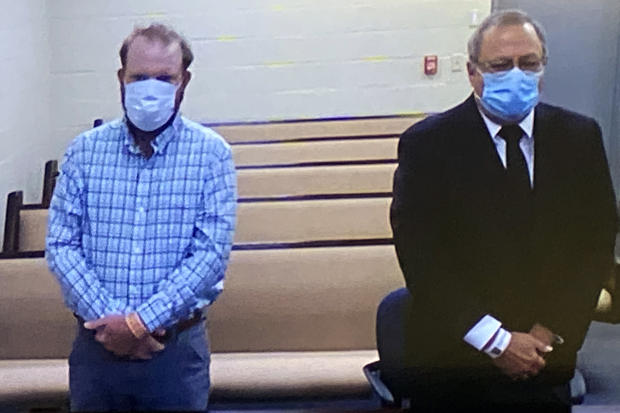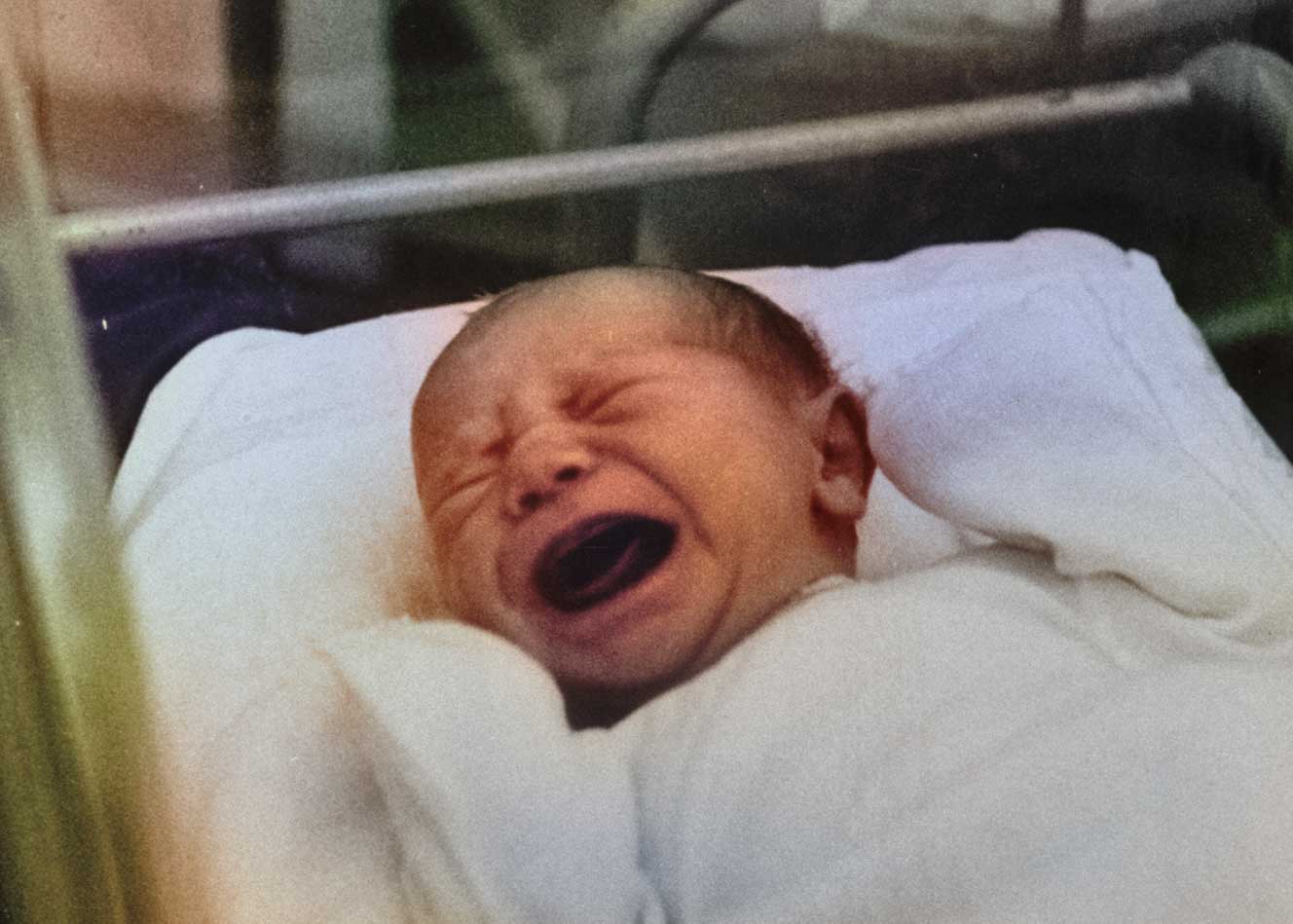Judge advances murder case against 3 men in Ahmaud Arbery's death
A judge has ruled that the cases against all three defendants charged with murder in the death of Ahmaud Arbery can advance to the trial court. During a probable cause hearing Thursday, Magistrate Court Judge Wallace Harrell found that there is enough evidence for the cases against Greg and Travis McMichael and William "Roddie" Bryan to proceed.
At the same hearing, a special prosecutor for the state of Georgia said evidence shows that Arbery was repeatedly boxed in by two pickup trucks as he desperately tried to escape. The lead Georgia Bureau of Investigation agent in the case also testified that the gunman said a racial slur as Arbery lay dying.
Agent Richard Dial testified that the white driver of the first pickup, Travis McMichael, finally got out and shot Arbery in the chest, the first of three shots with a pump-action shotgun that sent Arbery staggering and falling onto the road, mortally wounded.
Dial said the driver of the second pickup truck, Bryan, said he heard the gunman say a racist epithet as he stood over Arbery's body before police arrived.
Special prosecutor Jesse Evans said Arbery "was chased, hunted down and ultimately executed."
The evidence was presented to support murder charges against McMichael and his father as well as Bryan at a preliminary hearing Thursday. It challenges the claims of self-defense that have been raised by the gunman and his father, Greg McMichael. The statement will also be crucial for federal investigators who have launched a hate crime investigation, said Kami Chavis, professor of law and director of the criminal justice program at Wake Forest University.
"Investigators will be looking at evidence that suggests Ahmaud Arbery was killed because of his race, and a racial slur during or after the crime would be considered evidence of that," Chavis told CBS News.
Chavis said racial slurs used during crimes have led to convictions in other federal hate crime cases. Dial also said investigators have evidence from Travis McMichael's phone that he sent racist messages earlier this year, something Chavis said will also be relevant for federal prosecutors.
Hate crime charges are not an option for prosecutors at the state level because Georgia is one of a handful of states with no hate crime statutes, which generally allow for harsher sentencing for perpetrators of crimes ruled by a court to be bias-motivated.
The autopsy report for Arbery showed that he was shot three times, twice in the chest and once in the hand. The report also concluded Arbery did not have drugs or alcohol in his system, according to a copy of the report obtained by CBS News.
The McMichaels and Bryan were charged with murder months after the Arbery was killed, after a series of recusals by local prosecutors and the emergency of Bryan's video of the final encounter led to a state takeover of the case.
Lawyers for the defendants and the state acknowledged in court the extraordinary context for the hearing, following a week of angry protests in the U.S. over law enforcement biases against black victims. Most wore masks when they approached the bench or when they weren't speaking, conscious of the need to prevent spreading the coronavirus while most courts are closed due to the pandemic.
Glynn County Magistrate Judge Wallace E. Harrell must determine whether authorities have enough evidence of murder to go to trial.
Arbery was killed February 23 after the father and son armed themselves and gave chase when they spotted the 25-year-old black man running in their neighborhood just outside the port city of Brunswick. Bryan said he spotted them driving by and joined the chase, Dial said.
It wasn't until May 7 that those men — Greg McMichael, 64, and Travis McMichael, 34 — were charged with felony murder and aggravated assault. The McMichaels' arrests came two days after cellphone video of the shooting leaked online and stirred a national outcry.
Bryan, 50, filmed the video. He also was arrested and charged with felony murder and illegally using a vehicle to try to confine and detain Arbery.
Georgia law defines felony murder as a killing caused by the commission of an underlying felony. It does not require intent to kill. The minimum penalty is life in prison with a chance of parole.
Largely peaceful protests following the deaths of George Floyd in Minneapolis, Breonna Taylor in Louisville, Kentucky, and Arbery have led to outbreaks of violence in many larger cities, including Atlanta. Georgia Gov. Brian Kemp promised a "strong state law enforcement presence" in the Brunswick area Thursday to coincide with the court hearing.
Defense attorneys requested the hearing to make prosecutors show whether they have probable cause to charge the men with murder.
Greg McMichael told police after the shooting in February that he suspected Arbery of committing break-ins in the neighborhood. He said Arbery attacked his son before being shot.
Arbery's family has said he was merely out jogging. The former high school football player ran to stay in shape and lived less than 2 miles from the subdivision where he was killed. His mother said he planned to start technical college in the fall to become an electrician.
Defense attorneys for both McMichaels have said much remains unknown about what led to the shooting and have cautioned against rushing to judgment. An attorney for Bryan has said he was merely a witness to Arbery's death.
All three defendants remain jailed in Glynn County. A different judge will have to decide whether to allow them to go free on bond.
Erin Donaghue contributed to this report.






